The End of the Search Engine
One of the largest monopolies in tech is being slowly unwound. Here's why
A couple months ago, I posted my theory on why of the MAAG cos, I am most bearish on Google


Since then, Google has implemented infinite scroll


And by its own admission is failing at search and is improving its algorithm to “Focus on people first content” (read: we such at search and people are moving to tiktok, so we’re trying to fix it).
But why is this? Why is Google not able to keep up with TikTok despite the huge lead? And why do I think TikTok will eat Google’s pie?
The need to search
Google’s genius was in solving a problem most people faced in 2000. People wanted to search the internet for content and they wanted an easy way to do it. Google Search is one of the classic examples of a product that is 10x better than its competitors. Yahoo, Bing, MSN, etc. don’t come close and Google’s product was just better.
The best acquisitions in history
Google enjoyed a great lead. They invented a big money printing business (a business which later Facebook would perfect), the online ads business, and also have the best acquisition track record of any tech company:
Adwords in April 2003
Maps in October 2004
Analytics in March 2005
Android in July 2005
YouTube in October 2006
DoubleClick in April 2007
People today think of the above as Google native products, and some of these companies are $100B companies standalone, which highlights the success of Google’s acquisition strategy in the early to mid 2000s.
Google had a great vision: They wanted to have a Google ecosystem where people would be on Google forever, and use Google products to satisfy their needs and wants. Everything would be software first, and Google would sell hardware that runs Google software to everyone on the planet. That changed with the iPhone.
Google’s hardware exploration
The problem for Google was they weren’t the only ones thinking about an integrated ecosystem. The other person was Steve Jobs, and he happened to be better than anyone on Google’s team on both product development and execution capabilities.
Google sucked at product development, and Google couldn’t make any consumer hardware. Two things which Apple was extremely good at. The latter was a hard problem, because the revenue to be made from selling hardware is higher than selling ads, and both Google and Steve knew this was an opportunity for their respective cos to target. And like I said above, Steve was better at execution than anyone else.
The iPhone was a blowout success (the best product in the past 20 years imo). Google noticed this and came out with Nexus, which was a massive failure. It could never compete with the iPhone.
Google had multiple other Nexus phones, bought Motorola, and tried extremely hard to come up with a consumer hardware product (the only successful one ironically was another acquisition, Next). They failed at every step of the journey.
But nothing was lost, because..
The benefits of having a machine that prints money
When you have a machine that prints a massive amount of money every year (makes a joke about the Federal Reserve), you sometimes don’t pay attention to the machine. You let the machine get a little bit greasy, you don’t look at if there are better printers, and you certainly don’t look towards digital printing or other forms of printers.
This is what happened to Google. They could afford to lose at the hardware game and still have a great business. YouTube, Maps, AdWords were such big money making machines that a couple billion lost on the hardware side didn’t make much of a difference. And when you are making a lot of money, public market investors are happy. Share price goes up, earnings estimates are hit, stock options are valuable, everyone is happy.
Back to the printer analogy, it was clear Google didn’t pay attention to other printers because theirs was extremely good. But what about their own printer? Facebook’s entire presence is off the ad machine that Google invented, and exists because Google could not capitalize on social media despite multiple endeavors. Google’s ad business was so profitable that they had money leaking from the sides of the printer, which by itself was enough to create a new printer from scratch. But even then, it didn’t matter because Google had a monopoly to the gateway of the internet: Search. And as long as people searched for things, Google always made money.
The printer worked unchallenged (and still works well) for a long time. Google Search was still #1, Maps was still #1, YouTube was still #1, even though Google had given up on consumer hardware, social media, and other verticals that were enabled by its ad business. Google was the destination of every top graduate in every college around the world but still had a critical problem: it required that people search for content.
Many thought that assumption was infallible, that people would always search for content. Search was thought of the gateway to the internet, until..
ByteDance and TikTok
TikTok’s premise at the outset is of a simple social media app which has a ton of user generated content. People like videos, the algorithm suggests more videos, they consume more videos, and so on.
For the initial couple of years, big tech in the West did not pay attention to TikTok. It was a fun app which people used when they were bored. Some people dancing, some people lip syncing, not a big deal.
Then people started realizing the real problem: every minute spent on TikTok, where the algorithm feeds you endless content, is a moment spent less on social media. I explain this theory in detail here:
People are not searching for content
People are not searching for the content they see on TikTok, they like the content they see on TikTok so spend more time on it, and increasingly, they are defaulting to opening TikTok first when they open their phone because they know the algorithm is good and will suggest them relevant content (as opposed to Instagram, which is filled with ads, and Google, which requires user prompts). In other words, they were beginning their internet experience with TikTok, not Google.
The key behavioral change that TikTok made is it removed the step of searching for interesting / boring content. People could open an app and they would see something that fits. their interests. TikTok perfected the content suggestion algorithm by figuring out a way to show people what they want, based on:
Time of day
Behavior on the app
Likes and dislikes, how they interact with the app
Duration spent on the app
and more. The entrance to the gateway finally had a challenger: one that did not require any user interaction, and one that was so good that the need for user interaction was forgotten.
If people search, they are starting to search outside of Google
Another component of Google that TikTok is challenging is the Maps recommendation engine. People go to Google Maps, type in “restaurants near me” and are served a list of locations. Increasingly, this behavior is shifting to TikTok, where people are either shown restaurants near them automatically, or people just search for hashtags and get bite sized reviews of places they are interested in (not provided by Google).
People are tired of ads
People don’t like ads. People just don’t want to be sold random stuff without context. Google tried to do it in a palatable fashion but Facebook realized this early on, perfected it, and now overdoes it with Instagram.
TikTok on the other hand has ads with context. If your favorite influencer is wearing a new dress, you have some past context on the influencer to make a decision on whether to check the brand out or not (just like Facebook). And unlike Facebook, the content is usually engaging, and you consume more pieces of content in a single setting.
People like discovery
TikTok is one of the easiest ways for someone to be discovered. A person who has no followers can derive massive engagement, and a person with a million followers can too. Most existing forms of social media are not like this. In Google, you need to rank well on SEO, and on Facebook, you need to have a certain amount of followers for your post to be promoted among others. The base human desire to be discovered and be famous is hard to beat, and TikTok has perfected this.
People like people
People like people. That is why social media is so popular. They want to interact with real people, and they want to connect on a personal level. Google does not provide that. Facebook and TikTok do. And when a content platform combines with a connection platform, the resulting advantage is much higher than a pure content platform.
TikTok and Google
How do you defend your business which depends on user interaction from one which does not require user interaction? That is the dilemma facing Google today.
Is it entirely bad for Google
No. Google has some of the best data, Google has a great AI team, and DeepMind is one of the leading candidates for AGI research and development. And they still attract some of the best talent in the world, so they
But unlike last time with hardware, they won’t have it easy. Their money printer is declining and they must innovate. Their acquisition strategy in the past decade except Nest has mostly been a failure, so they can’t count on buying the next big company. And TikTok won’t stop innovating, because they have their sights on the big prize: the massive money printing machine of Google.



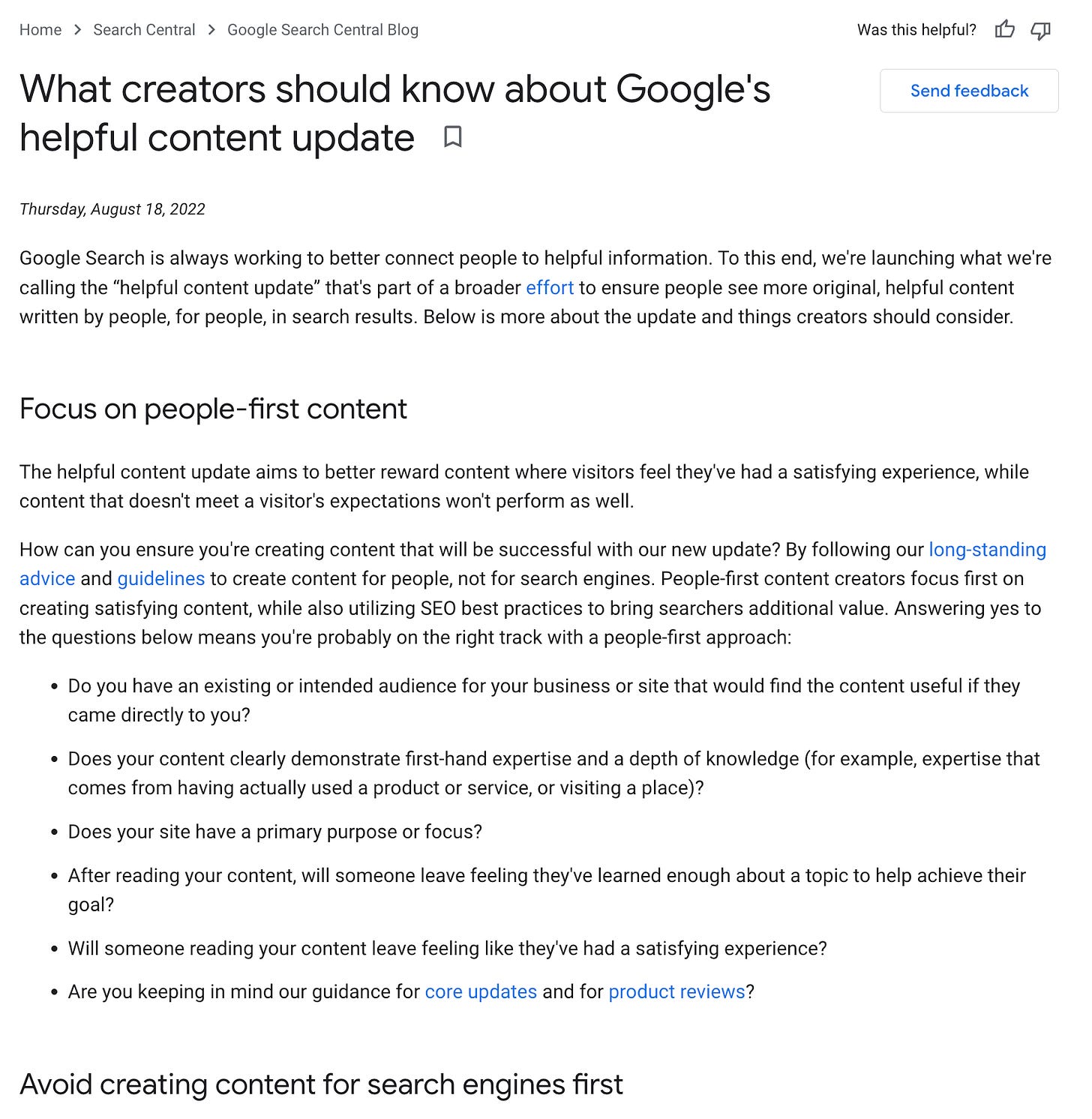
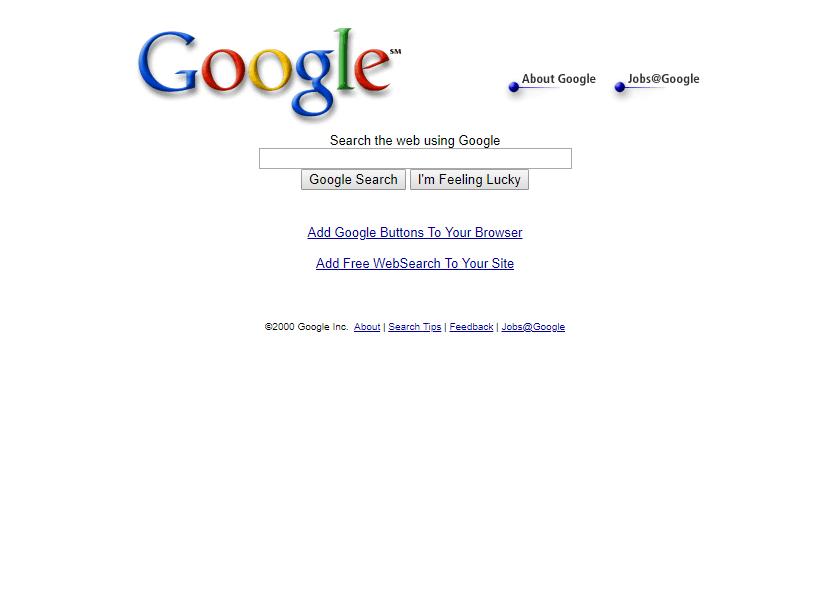
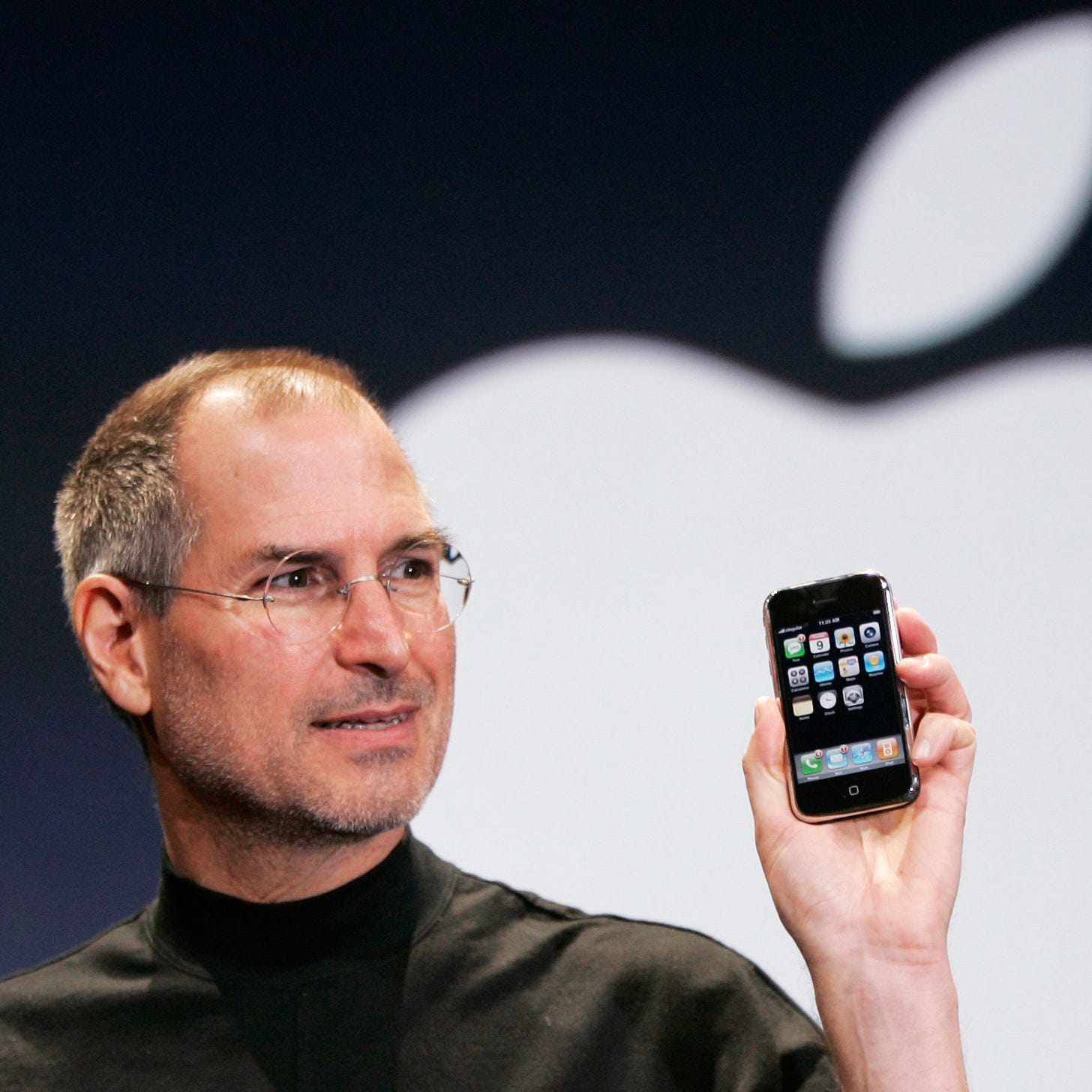

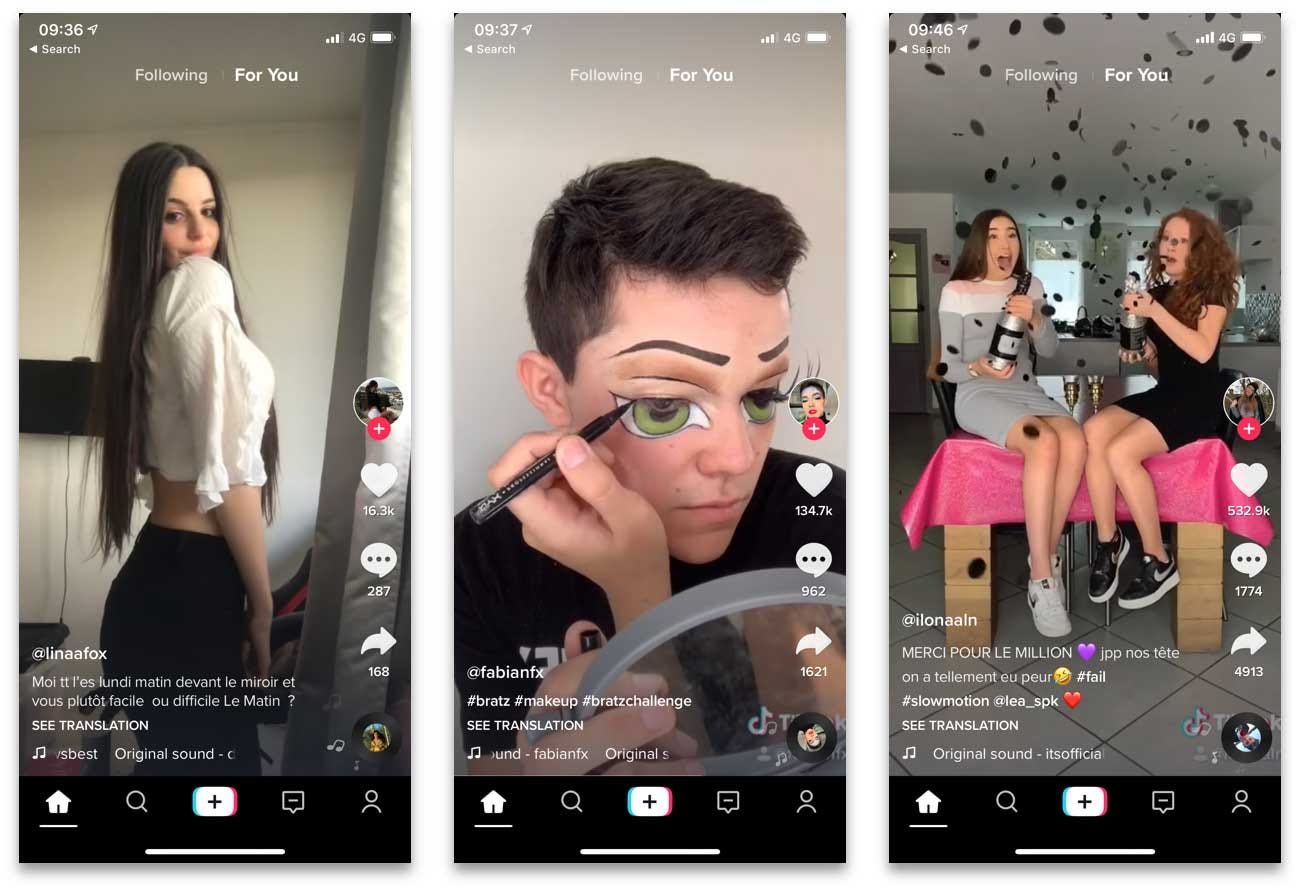
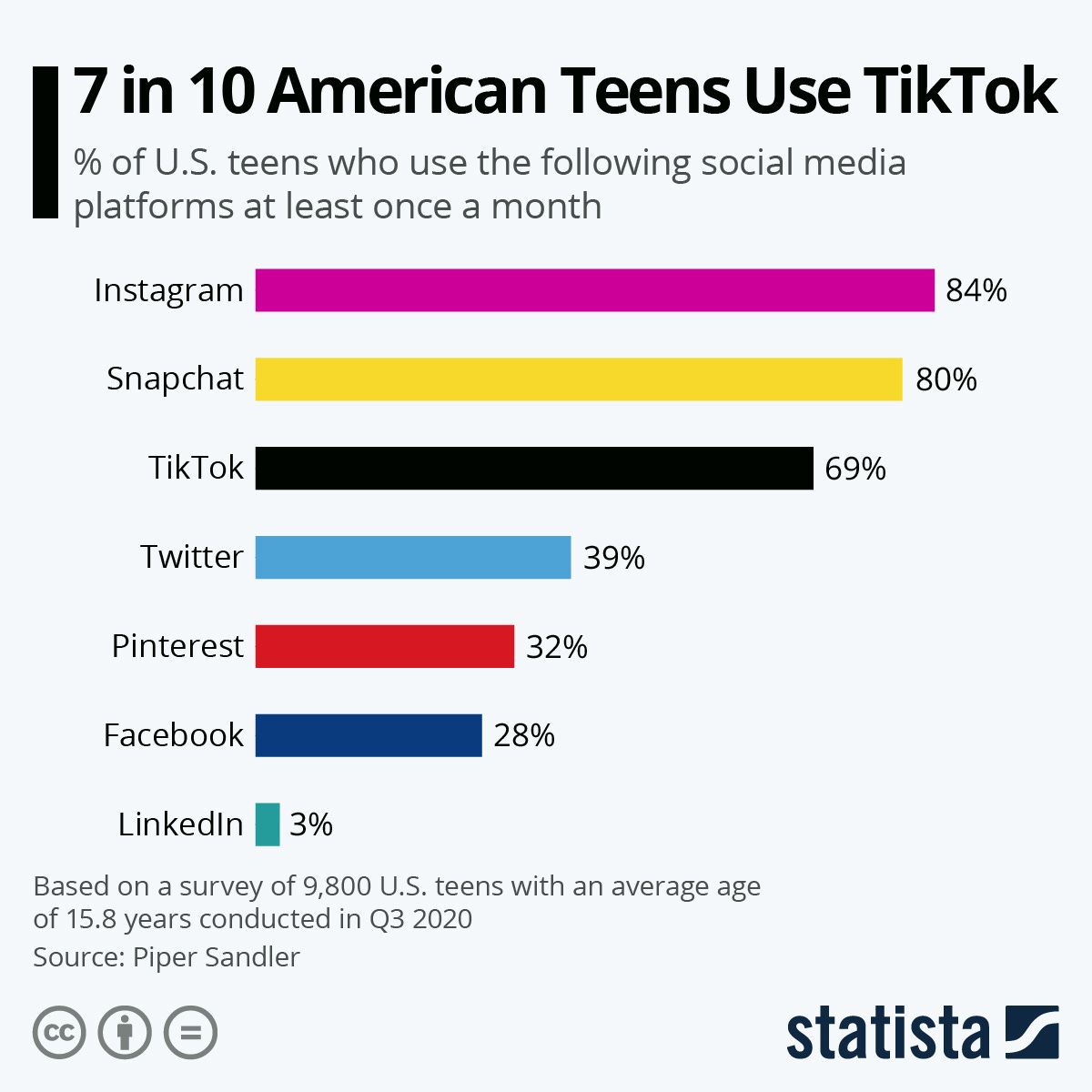
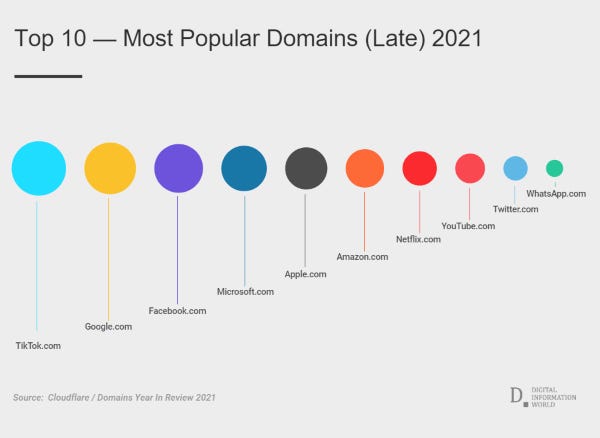
You're a good writer.